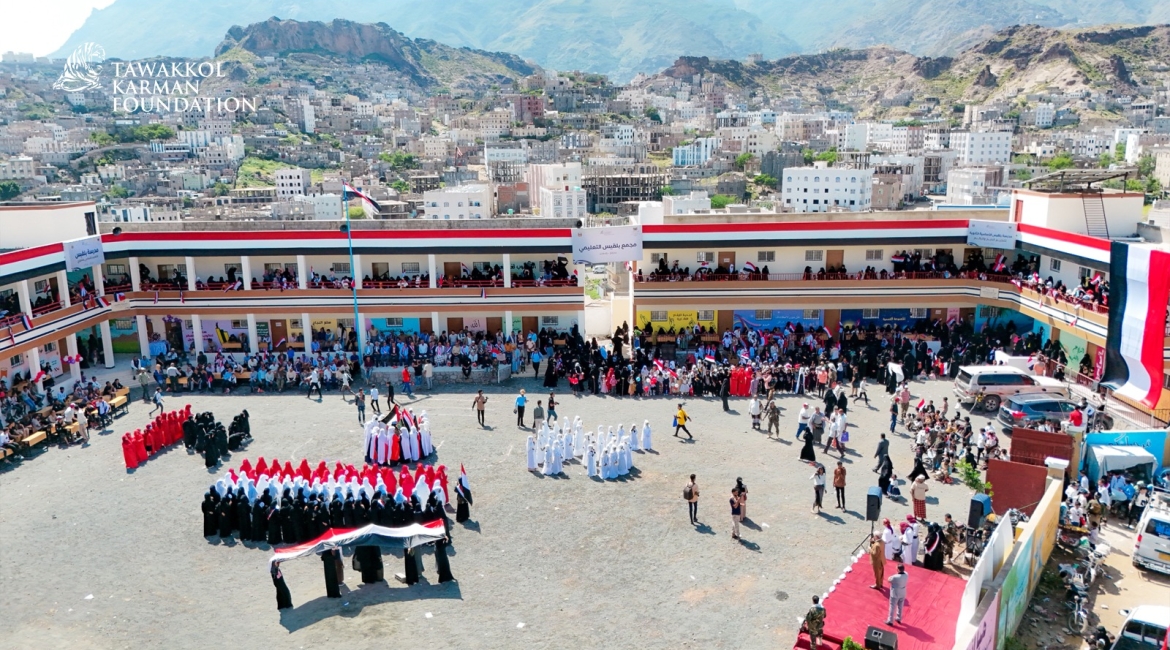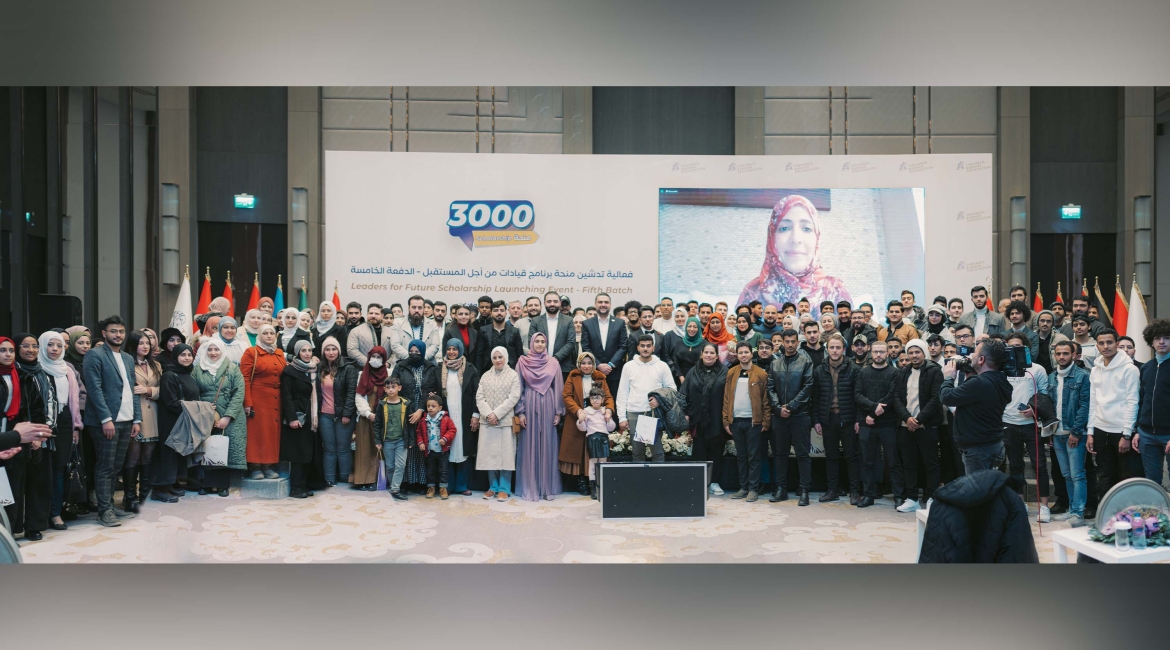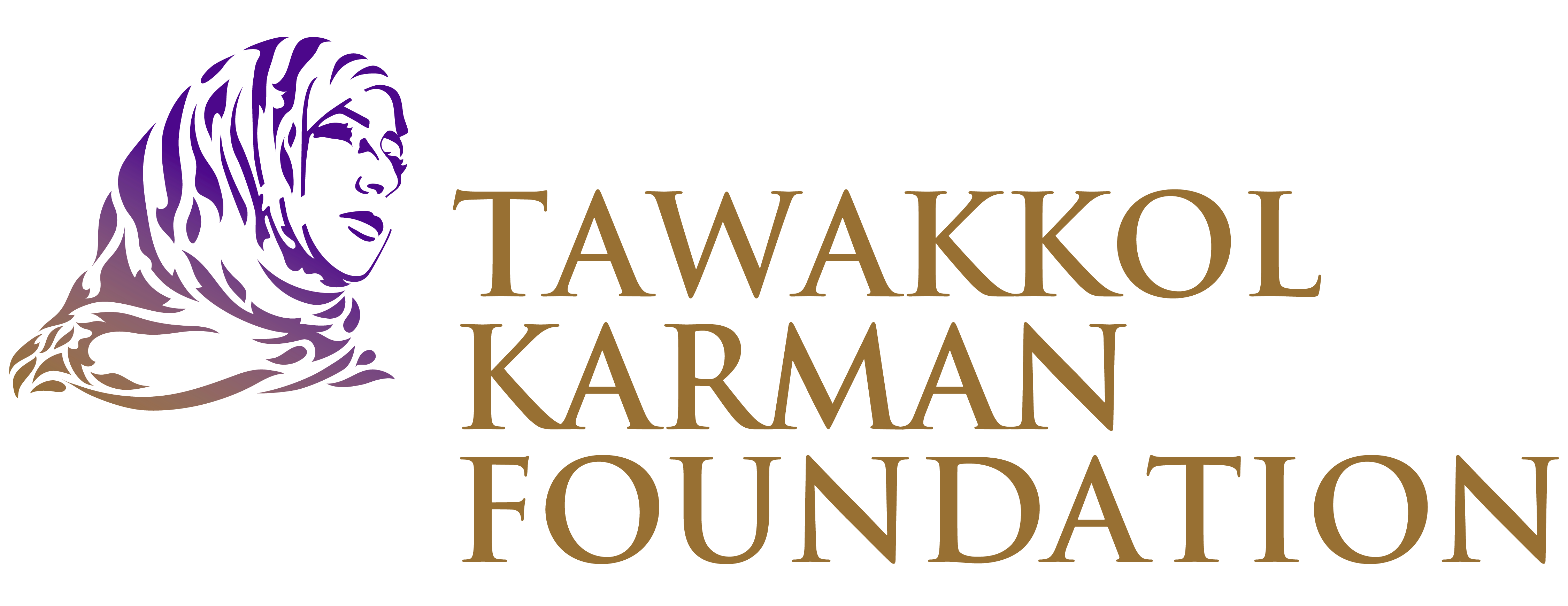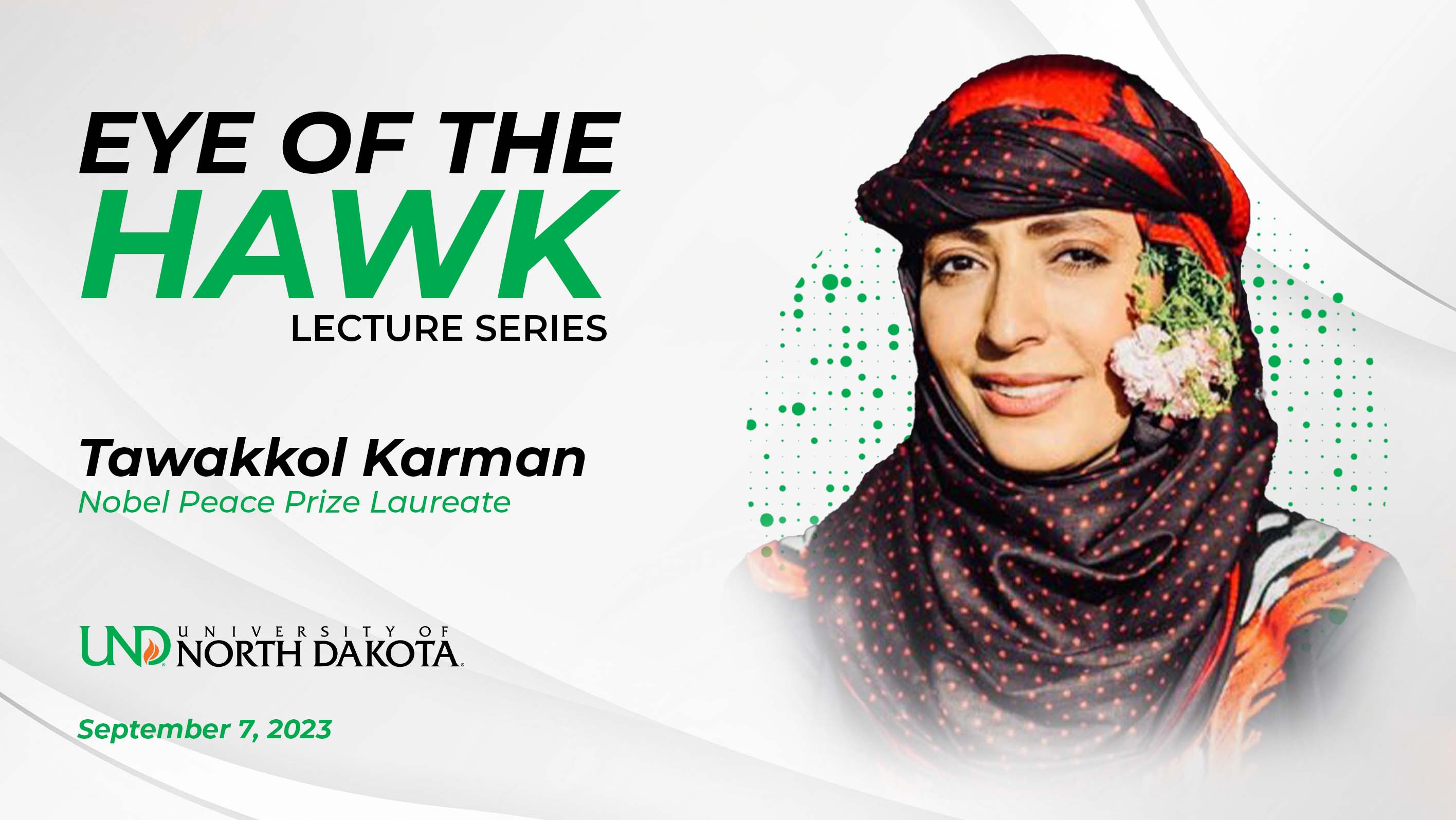Human rights activist and Nobel Peace Prize laureate Tawakkol Karman has delivered a thought-provoking lecture at the University of North Dakota, shedding light on the global challenges threatening democracy and human rights.
Karman's impassioned words emphasized the urgent need for collective action to confront these pressing issues.
Karman began by noting the alarming retreat from democratic principles that has been taking place in recent years. She pointed to the ongoing conflict in Ukraine as a major example of this trend, as well as the rise of military coups in Africa and the spread of racism and far-right extremism in Western nations.
Karman also expressed concern about the deliberate manipulation of public opinion by oppressive governments, which she said is being facilitated by the use of modern technology and communication platforms.
Karman underscored the broader impact of conflicts, correlating them with economic, energy, and food crises that reverberate across all aspects of life, ultimately fostering an environment conducive to the erosion of core democratic values and human rights, while enabling the rise of oppressive governments.
Throughout her lecture, Karman emphasized the significance of maintaining a balanced perspective, urging the audience to acknowledge the dangers at hand without succumbing to pessimism, while passionately advocating for an commitment to democratic values and human rights, calling upon individuals and nations to proactively address the challenges and strive tirelessly for peace, freedom, and equality.
Regional issues were also explored, with a specific focus on military coups in Africa and their implications for democracy. Karman acknowledged that the overthrown regimes were not democratic, but she highlighted the erosion of trust and unmet demands that made military coups seem like an attractive option.
Karman further discussed the rise of racism and far-right extremism in Western nations, attributing it to the failure to confront these tendencies at an early stage. She emphasized that this failure has resulted in the adoption of discriminatory policies against refugees, migrants, and individuals from diverse backgrounds, exacerbating the threats to democracy and human rights.
Another concern raised by Karman was the deliberate manipulation of public opinion through deceptive information by oppressive governments. She shed light on the use of modern technology and communication platforms to spread misinformation, which undermines trust in institutions and hampers progress towards democracy.
In her concluding statements, Karman emphasized the imperative of embracing a global perspective that acknowledges the perils presented by tyranny and fascism, underscoring the criticality of upholding democracy, justice, and human rights as a unifying force that transcends divisions of race, religion, and culture among people worldwide.
Here is the complete transcript of the lecture:
I am delighted to participate in today's lecture program of the College of Arts and Sciences at the University of North Dakota, the "Hawk Eye Lecture Series," discussing a significant topic about tyranny and the future of democracy in a world plagued by crises, wars, and chaos.
In light of the profound setbacks faced by humanity in the realms of democracy, freedoms, and human rights, it is essential to engage in a constructive exchange of perspectives with individuals who share an interest in these principles, as the unfolding events serve as a stark reminder, emphasizing the crucial need for such discussions.
In the past years, I have addressed the future of democracy in numerous academic and international forums. Nevertheless, upon revisiting the subject, it becomes apparent that global developments have reached a pivotal juncture, witnessing a widespread retreat from democratic principles and a transition into an era that challenges the very foundations of democracy and human rights. This transformative period is characterized by global confrontations encompassing profound conflicts, wars, and multifaceted crises spanning economic, energy, and food security domains.
Undoubtedly, the future of democracy and freedoms seems grim, as these principles are increasingly overshadowed and marginalized by prevailing ideologies that are more inclusive yet inherently violent. Several factors contribute to this unsettling trend, with the foremost being the global conflict triggered by the war in Ukraine, which presents intricate challenges across geopolitical, economic, cultural, and intellectual spheres. The repercussions stemming from this global confrontation are propelling the world towards unparalleled regressions in democratic values, human rights, and the overarching framework of human values that prominently emerged in the latter half of the twentieth century.
The wars, power politics, and military tensions among major nations threaten the world as a whole with a series of economic, energy, and food crises, permeating every sphere of life, prominently manifesting in the regression of democracy and human rights in international relations and the proliferation of a conducive environment for dictatorships, nationalist chauvinism, and racism in Europe and the world at large.
While I am not inclined towards pessimism, our steadfast alignment with the values of democracy and human rights compels us to acknowledge the perils of global regression from democracy and to devise apt initiatives to counteract the ramifications of wars and global conflicts, which ominously herald the possibility of a global transformation that disregards human values, rekindles the era of major wars, invasions, and mass atrocities.
Dear colleagues and friends,
Let us take a look at the current wave of military coups in Africa and their implications for the future of democracy on the continent. First and foremost, we need to acknowledge that the regimes toppled by military coups were not truly democratic, despite being labeled as such due to formalities. The truth is that trust in institutions had gradually eroded over time due to the French influence aligned with governments subservient to its interests.
In those African countries, there is a prevailing sense among the people that their voices are being disregarded and their demands remain unfulfilled. The failure of democracy to deliver on its pledges in those nations elucidates the popular endorsement of military coups that propel these countries towards an uncertain future.
The erosion of trust in France-aligned governments has engendered a conducive milieu for the exploitation of populist leaders and movements, adeptly leveraging the moment to malign "democracy" and orchestrate coups. From the perspective of these populations, democracy is intrinsically linked to rulers who prioritize the interests of France, perpetuating their hold on power for extended durations through the intricate manipulation of power dynamics that invariably prioritize foreign agendas over the authentic aspirations of their own people.
Africa, like many nations in the Middle East and the developing world, faces challenges of poverty, inequality, corruption, and ineffective governance, hindering development and depriving vulnerable populations of employment opportunities and essential services.
With the series of global energy and food crises stemming from the conflict in Ukraine, the suffering of majority populations in various regions around the world is set to intensify. This will serve as an additional factor contributing to instability in countries grappling with direct oppression or nominal democracies.
These cycles of impoverishment and exclusion contribute to a growing distrust in institutions, undermining their legitimacy. Additionally, the lack of transparency in public decision-making processes and the absence of government accountability further erode people's confidence and trust in those in power.
The threats facing democracy and Europe, as well as the world at large, necessitate structural changes and a reevaluation of global policies. To effectively respond to emerging challenges, a fundamental transformation in global mindsets is imperative, as it necessitates a shift in attitudes worldwide to confront the risks that jeopardize democracy, human rights, freedom, and peace.
A critical examination of the emergence of racist groups in Western nations is necessary to comprehend the deepening ambiguity surrounding the future of democracy, even within countries that have historically shaped the culture and institutions of democratic governance. The resurgence of racism and animosity towards immigrants and refugees has led to the closure of avenues for tolerance within immigration systems, while European states have increasingly embraced isolationist policies.
The rise of racism and far-right extremism in Western countries can be attributed to a failure to address and confront these racist tendencies as a significant problem at an early stage. Racist and isolationist policies have been fueled, specifically targeting refugees, migrants, and individuals with origins in the Middle East, Africa, and Latin America. The term "terrorism" has been exploited and misused as a deceptive tool to justify these discriminatory policies and to rationalize the withdrawal of major powers from engaging in efforts to contain conflicts, violence, and instability in the Middle East. Consequently, countries have adopted increasingly isolationist and discriminatory measures, disregarding the plight of millions of refugees and migrants who are seeking safety and refuge from their home countries.
The rise of racism in Western democracies is driven by forces and interests that see no alternative path to their ascent but through mobilizing the masses with extremist racist ideologies, going as far as undermining the very foundations of democracy, human rights, and global peace.
One of the primary risks to the future of democracy is the deliberate use of deceptive information by oppressive governments to shape domestic and international public opinion. The intention of these authoritarian regimes is to create a world where false information prevails, clouding people's vision and blurring the boundaries between truth and lies. Their goal is to mislead the masses and manipulate public opinion to a point where everything is believed and nothing is trusted simultaneously, fostering a belief that anything is possible and that nothing can be deemed definitively true.
The purpose of deception is to conceal truths and rob the masses of their ability to engage effectively, as well as their awareness of being deceived. In certain instances, false information reaches alarming levels, further fueling hate speech against dissenters, opinion holders, oppressed, marginalized, and excluded groups who are deprived of participation.
Deception and falsehoods have always been used, but today's distinguishing factor is the unprecedented use of modern technology and evolving communication platforms as arenas for spreading misinformation and deliberate deception.
Misinformation and lies are increasingly employed to benefit dictators and states that disregard truth and hold contempt for freedom of the press and human rights. The positions of governments and political actors often provide a platform for the spread of misleading information and falsehoods. They employ electronic militias in propaganda campaigns that rely on fabrications, lies, and deception to obscure the truth and manipulate public opinion.
Oppressive regimes engaged in conflicts against their own societies and neighboring nations are the primary promoters of an environment characterized by lies and the dissemination of misleading information. This creates a challenging landscape that impedes democracy and adds growing complexities to its progress.
Any discussion about the future of democracy inevitably brings to mind the setbacks of the Arab Spring, as the Western democratic abandonment of this movement marked the beginning of global trends that undermine democracy and human rights, creating a fertile ground for conflicts that jeopardize humanity, potentially leading us into a dark era and posing the risk of nuclear warfare that could destroy human civilization as a whole.
The act of demonizing the Arab Spring, criminalizing peaceful popular revolutions, and placing blame on them goes against the principles of democracy, justice, and human rights.
How can we convey to our people that the democratic West expresses concerns about democracy and its future in our region and the world, while democratic countries in America and Europe have let us down with their positions, supporting coups and counter-revolutions out of fear of change and its potential consequences in Arab and Middle Eastern countries?
The global abandonment of the Arab Spring marked the beginning of a decline in democratic aspirations. Meanwhile, despotic regimes, sectarian militias, and extremist groups, despite their crimes, have received recognition and appeasement. At the same time, they have waged war against peaceful popular revolutions and societies that have courageously advocated for change, freedom, and democracy, challenging oppressive and failing systems.
Let's be honest and say that change requires a broad global perspective that sees tyranny and fascism as a danger wherever they exist, whether in the Middle East, Africa, Europe, or the wider West.
In conclusion, I reiterate that amidst these global disruptions and uncertainties regarding the future of democracy, we must personally and resolutely stand by our values, embracing democracy, justice, and human rights. The ongoing chaos, wars, and crises only strengthen our determination to uphold democracy as a remarkable human achievement that enables participation, accountability, promotes equality, and upholds laws that respect and protect human rights.
In today's world, where the significance of power and armaments in global conflicts is readily apparent, we are equally aware of the importance of the human achievements in establishing laws and traditions that uphold the building of nations on foundations that protect rights and freedoms. Democracy and human rights will continue to be universal values that unite people, irrespective of their race, religion, or culture.




